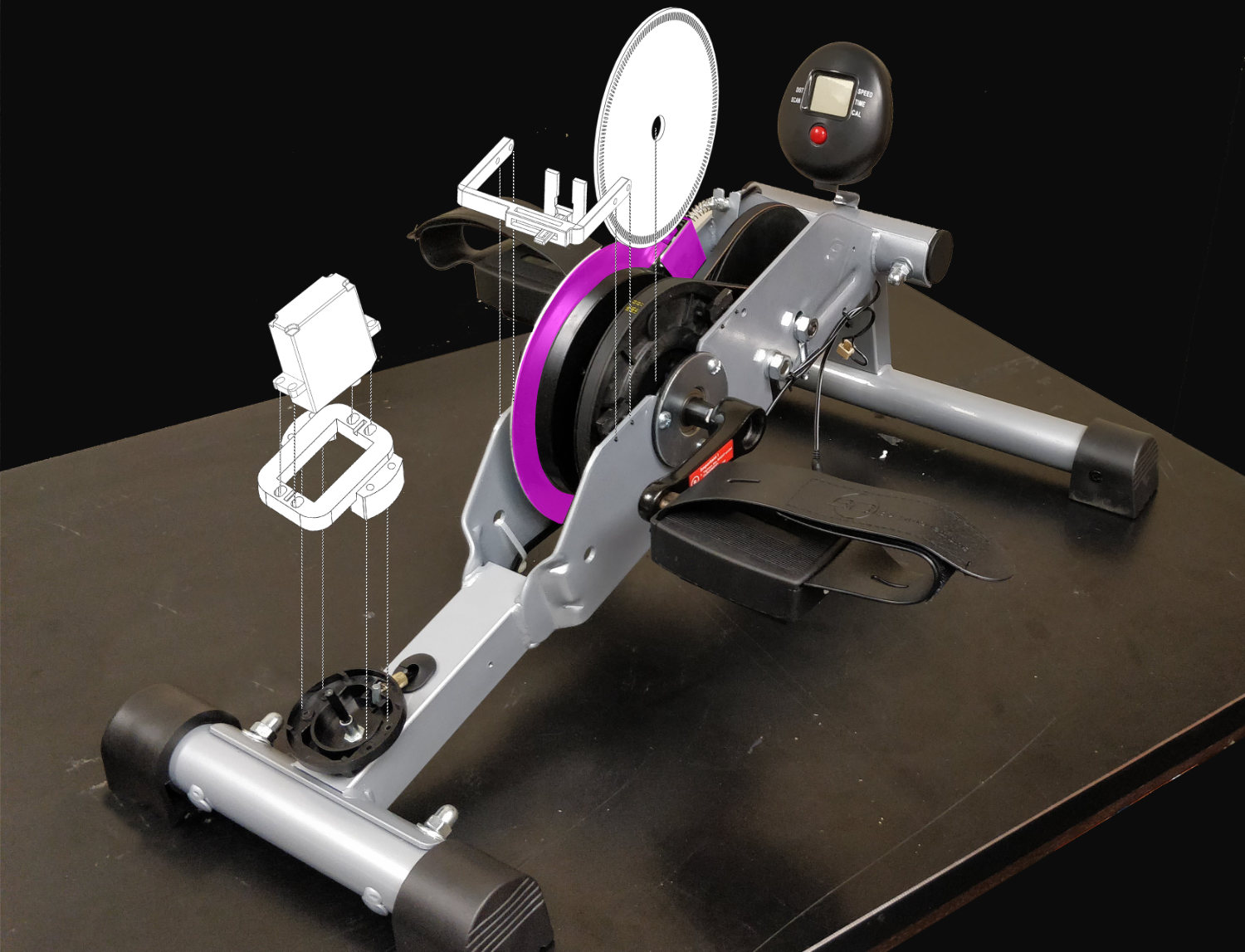Abstract
This project sought to augment a Desk Cycle by integrating a Raspberry Pi Zero W to facilitate variable resistance and rotational speed measurement. The objective was to enhance an existing exercise device with a capacity for real-time data analysis and feedback. The technical execution involved the design and implementation of an electronically adjustable resistance module, interfaced with the cycling mechanism.
Through the application of I2C and PWM communication protocols, the embedded system synchronizes the tachometer and resistance settings, enabling precise control over the exercise parameters. The system’s architecture allows for the wireless relay of cycling metrics to Simulink for subsequent analysis. This setup is part of a broader research tool intended to explore neuromuscular engagement during locomotion exercises.
Mechanical design considerations were critical in retrofitting the Desk Cycle with new components while preserving its functional integrity and user-friendliness. Control algorithms were developed to manage the resistance in accordance with user interaction, adjusting to varying exercise intensities and patterns. The approach employed aims to investigate the correlation between mechanical stimuli and neuromuscular response, as indicated by data captured through the modified device.
This enhancement of the Desk Cycle represents an interdisciplinary approach that merges mechanical engineering, control theory, and electronic communication to achieve a versatile research instrument. The apparatus is envisioned to contribute to studies on physical engagement, with potential implications for evaluating and improving motor function, especially within elder demographics at risk of balance-related ailments.
Schematic of the retrofitted Desk Cycle
